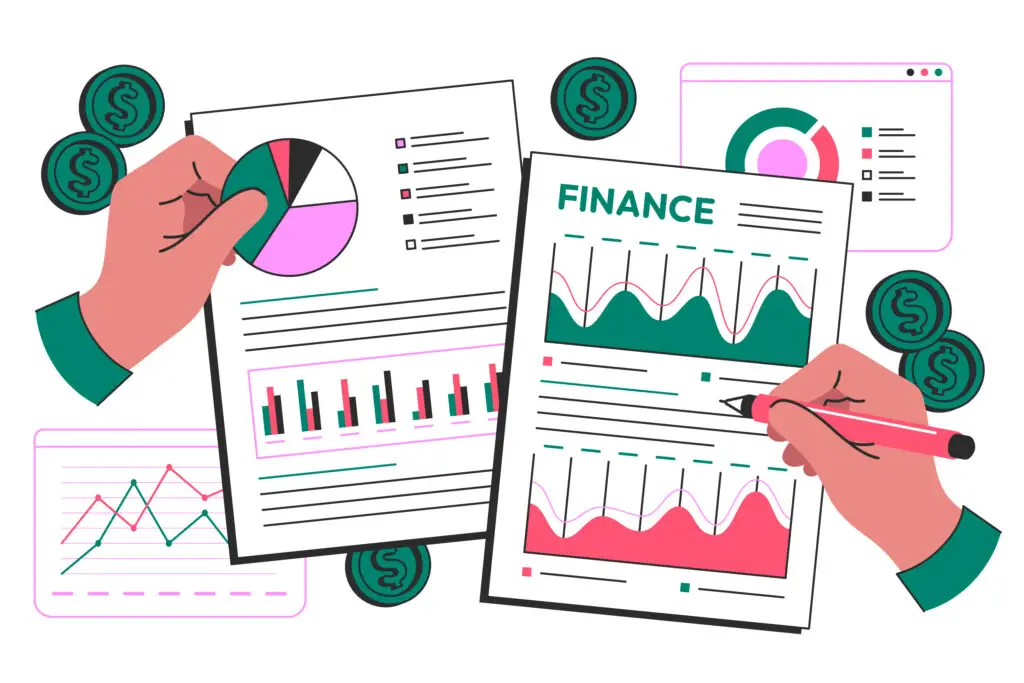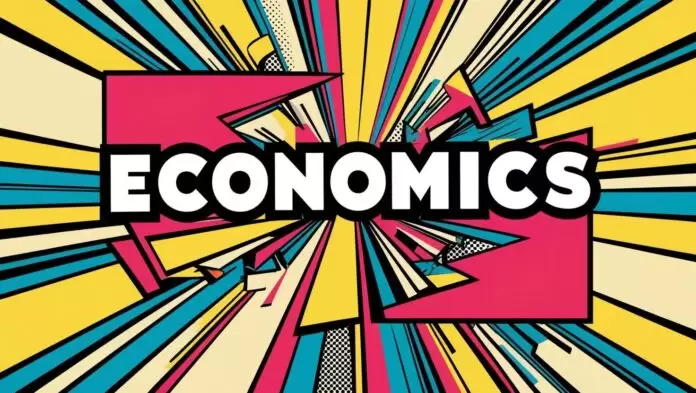If you’re a student, educator, or researcher seeking fresh and relevant economics project topics for 2025, you’re in the right place. This comprehensive list of 100 project ideas spans various subfields of economics, ensuring there’s something for everyone. Whether you’re interested in microeconomics, macroeconomics, international trade, or environmental economics, these topics are designed to inspire and guide your research journey.
Why Choose These Economics Project Topics?
In 2025, the global economic landscape is evolving rapidly due to technological advancements, policy shifts, and environmental concerns. Selecting a project topic that aligns with current trends enhances your work’s relevance and provides valuable insights into pressing economic issues.
100 Economics Project Topics for 2025
Microeconomics
- Consumer behavior in the digital age.
- Price elasticity and product demand.
- Behavioral economics: Psychological factors in purchasing decisions.
- Game theory applications in competitive markets.
- Effects of minimum wage policies on small businesses.
- Impact of advertising on consumer choices.
- Economics of monopolies and oligopolies.
- Supply and demand determinants.
- Price discrimination strategies.
- Market equilibrium and its implications.
Macroeconomics
- Effectiveness of fiscal stimulus packages.
- Inflation and unemployment relationship.
- Central bank policies and economic growth.
- Government debt and economic stability.
- GDP growth trends in emerging economies.
- Impact of taxation policies on economic growth.
- Role of government expenditure in the economy.
- Economic cycles and their effects.
- Budget deficits and their implications.
- Monetary policy and its impact on investment.
International Economics
- Trade tariffs and global markets.
- Currency fluctuations and exports.
- Role of international organizations in trade regulation.
- Free trade agreements and developing nations.
- Foreign direct investment and economic growth.
- Balance of payments analysis.
- Exchange rate policies and their effects.
- Impact of globalization on local economies.
- Trade policies and their economic implications.
- Comparative advantage in international trade.
Environmental Economics
- Carbon taxes and industry impact.
- Renewable energy adoption and job creation.
- Cost-benefit analysis of climate change policies.
- Green bonds and sustainable project financing.
- Water scarcity and agricultural economics.
- Economic implications of environmental regulations.
- Climate change effects on agriculture.
- Sustainable development and economic growth.
- Natural resource management economics.
- Environmental taxation and it
Development Economics
- Microfinance and poverty alleviation.
- Education’s impact on economic development.
- Infrastructure development and economic growth.
- Gender equality and economic performance.
- Healthcare access and productivity in developing countries.
- Role of NGOs in economic development.
- Impact of population growth on economic development.
- Urbanization and its economic effects.
- Economic planning and its outcomes.
- Economic inequality and its consequences.
Econometrics and Data Analysis
- Education and income level correlation.
- Inflation’s effect on consumer spending.
- Interest rates and housing markets.
- Stock market performance determinants.
- Tax rates and economic growth correlation.
- Big data in economic forecasting.
- Econometric modeling of economic indicators.
- Time series analysis in economics.
- Panel data analysis in economic research.
- Regression analysis in economic studies.
Public Economics
- Public healthcare system efficiency.
- Taxation and income redistribution.
- Government subsidies and renewable energy adoption.
- Effectiveness of social welfare programs.
- Public debt management strategies.
- Role of government in the economy.
- Public goods and their provision.
- Impact of fiscal policies on economic stability.
- Government expenditure and economic growth.
- Tax reforms and their economic effects.
Labor Economics
- Gig economy’s effect on traditional employment.
- Automation and labor markets.
- Wage disparities and economic implications.
- Labor unions and wage negotiations.
- Youth unemployment trends and policies.
- Labor laws and employment rates.
- Minimum wage laws and their impact.
- Employment trends in rural vs. urban areas.
- Labor market flexibility and economic performance.
- Job satisfaction and productivity.
Health Economics
- Universal healthcare system cost-effectiveness.
- Economic burden of chronic diseases.
- Healthcare spending and life expectancy.
- Pharmaceutical pricing strategies.
- Pandemics’ impact on national economies.
- Health insurance and economic stability.
- Healthcare access and economic productivity.
- Public health policies and economic outcomes.
- Mental health and economic implications.
- Healthcare infrastructure and economic development.
Financial Economics
- Cryptocurrency adoption and traditional banking.
- Financial markets and economic development.
- Risk management in financial institutions.
- Causes and consequences of financial crises.
- Interest rates and investment decisions.
- Stock market volatility and economic indicators.
- Behavioral finance and investor behavior.
- Financial regulations and market stability.
- Capital markets and economic growth.
- Financial inclusion and economic empowerment.
50 Compelling Economics Project Topics

Here are some research ideas spanning various subfields within economics that could be explored:
- The Impact of Automation on Employment: Investigating how automation and artificial intelligence affect job markets and income inequality.
- Universal Basic Income (UBI): Analyzing the economic and social implications of implementing a UBI.
- Climate Change Economics: Studying the economic consequences of climate change and potential policy solutions.
- Behavioral Economics in Public Policy: Exploring how insights from behavioral economics can be applied to shape public policies effectively.
- Income Inequality and Wealth Distribution: Examining the causes and consequences of income inequality and potential policy interventions.
- Health Economics: Investigating the economics of healthcare systems, including access, costs, and quality.
- Trade Wars and Tariffs: Analyzing the economic impact of trade disputes and tariffs on global economies.
- Cryptocurrency and Blockchain Technology: Studying the economic implications of cryptocurrencies and blockchain on traditional financial systems.
- Education Economics: Researching the economic factors influencing access to quality education and its long-term effects.
- Impact of COVID-19 on the Economy: Assessing the economic repercussions of the COVID-19 pandemic and potential recovery strategies.
- Economic Growth in Developing Nations: Analyzing factors that contribute to economic growth and development in emerging economies.
- Labor Market Dynamics: Investigating trends in the gig economy, remote work, and the changing nature of employment.
- Trade and Environmental Sustainability: Exploring the balance between international trade and environmental conservation.
- Innovation and Economic Productivity: Studying the relationship between innovation, technological progress, and economic productivity.
- Housing Market and Affordability: Examining housing affordability challenges and potential policy solutions.
- Monetary Policy and Central Banking: Analyzing the role of central banks in stabilizing economies and controlling inflation.
- Impact of Aging Populations: Investigating the economic implications of aging populations and strategies for sustainable retirement systems.
- Gender Economics: Researching gender disparities in the workplace, pay gaps, and their economic impact.
- Globalization and Income Mobility: Studying how globalization affects income mobility and inequality.
- Natural Resource Economics: Analyzing the management and sustainability of natural resources like water, energy, and minerals.
- Financial Crises and Regulations: Investigating the causes and consequences of financial crises and regulatory responses.
- Economics of Education Technology: Exploring the impact of technology on educational outcomes and access.
- Poverty Alleviation Strategies: Researching effective methods for reducing poverty and improving living standards.
- Economics of Mental Health: Examining the economic costs and benefits of mental health interventions.
- Digital Economy and E-commerce: Analyzing the economic dynamics of the digital marketplace and e-commerce.
- Political Economy: Investigating the intersection of economics and politics, including the influence of political institutions on economic outcomes.
- Economic Impact of Immigration: Studying the economic effects of immigration policies and immigrant contributions to host countries.
- Supply Chain Disruptions: Analyzing the vulnerabilities and economic consequences of disruptions in global supply chains.
- Economic Consequences of Natural Disasters: Investigating the economic recovery and resilience following natural disasters.
- Economics of Happiness: Researching factors that contribute to individual and societal well-being.
- Economics of Aging Workforce: Investigating the economic implications of an aging workforce, including retirement trends and pension systems.
- Taxation Policies and Economic Growth: Analyzing the impact of different taxation policies on economic growth and government revenue.
- Energy Economics: Researching the economics of renewable energy adoption, energy efficiency, and the transition to a low-carbon economy.
- Social Capital and Economic Development: Studying the role of social networks and trust in fostering economic development.
- Rural vs. Urban Development: Examining disparities in economic development between rural and urban areas and potential strategies for reducing these gaps.
- Economic Impact of Tourism: Analyzing the economic benefits and challenges associated with the tourism industry.
- Economics of Artificial Intelligence: Investigating how AI technologies are transforming industries, labor markets, and productivity.
- Economic Consequences of Trade Agreements: Studying the effects of international trade agreements on global and regional economies.
- Economic Impact of Healthcare Innovations: Researching the economic implications of medical breakthroughs and technological advancements in healthcare.
- Economics of Addiction and Substance Abuse: Examining the economic costs of addiction and evaluating policy interventions.
- Economic Resilience in the Face of Crises: Analyzing strategies for building economic resilience to withstand various shocks, including pandemics and economic crises.
- Economics of Entrepreneurship: Investigating the role of entrepreneurship in driving innovation, job creation, and economic growth.
- Economics of Water Scarcity: Studying the economic consequences of water scarcity and sustainable water management practices.
- Economic Impact of Cultural Heritage: Researching the economic value of preserving cultural heritage and historical sites.
- Economics of Philanthropy: Analyzing the economic impact of charitable giving and philanthropic activities.
- Economics of Intellectual Property: Investigating the economic implications of intellectual property rights and innovation.
- Economic Effects of Global Health Pandemics: Studying the long-term economic consequences of global health crises beyond COVID-19.
- Economic Aspects of Aging Population: Examining the economic challenges and opportunities associated with an increasingly elderly population.
- Economic Impact of Cybersecurity: Analyzing the economic costs and benefits of investments in cybersecurity.
- Economic Analysis of Space Exploration: Investigating the economic viability and potential benefits of space exploration and commercialization.
Note:
These are just a starting point, and there are countless other economics project topics within economics. Depending on your specific interests and expertise, you can delve deeper into any of these areas to develop research ideas that align with your goals.

